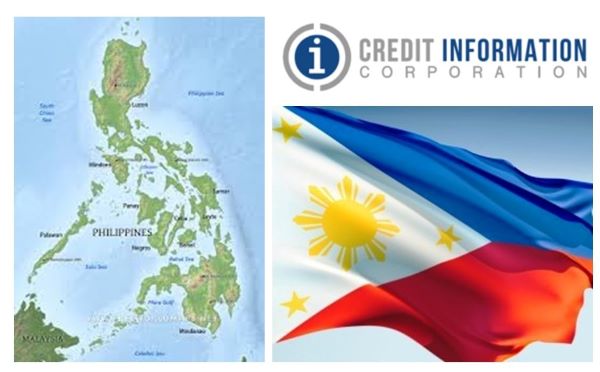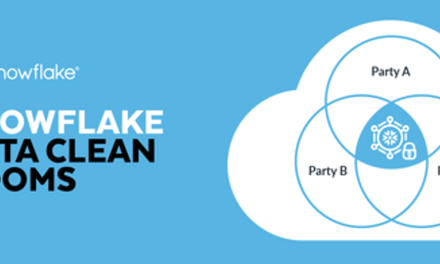Credit Information Corporation (CIC), the country’s public credit registry and repository of credit information, underscored how alternative and non-traditional data can help the unbanked and underbanked sectors gain access to credit facilities during the webinar on “Optimizing Alternative Data for Inclusive Credit Access” spearheaded by FinTech Alliance.PH.
 CIC President and CEO Atty. Ben Joshua Baltazar, who was one of the main speakers, explained how traditional credit data “is mainly reliant on credit repayment activity which may exclude the credit-invisible, underserved, and newcomers.”
CIC President and CEO Atty. Ben Joshua Baltazar, who was one of the main speakers, explained how traditional credit data “is mainly reliant on credit repayment activity which may exclude the credit-invisible, underserved, and newcomers.”
FinTech Alliance.PH Chairman and RCBC Executive Vice President and Chief Innovation and Inclusion Officer Mr. Lito Villanueva also stressed that financial institutions—from banks to online lending companies—have struggled historically to extend credit data to the unbanked due to lack of sufficient data.
These led to the emergence of alternative data as an approach to capture and cater to the said sectors and ultimately achieve financial inclusion in the country.
Optimizing alternative data towards inclusivity
The CIC PCEO, who spoke alongside representatives of Bangko Sentral ng Pilipinas (BSP) and the National Privacy Commission (NPC), discussed the strengthening of the country’s credit registry and optimizing alternative data towards the goal of inclusivity as envisioned by the Credit Information System Act (CISA).
“Alternative and non-traditional data—which includes data from non-conventional sources such as online transactions, telecommunications, and utilities—are complementary to the traditional data that the CIC currently receives from its covered financial entities. It can provide a 360-degree view of a borrower’s credit profile at all stages of their credit life cycle, and thereafter provide entry points for those that are underserved to build their credit,” Atty. Baltazar stated.
This coincides with the result of BSP’s Alternative Data Usage Survey as presented by its Director for Financial Inclusion Office, Strategic Communications and Advocacy, Ms. Ellen Joyce Suficiencia. Data showed that 78% of the 146 surveyed financial institutions realize the tangible benefits of using alternative data.
Meanwhile, Atty. Anna Benjieline Puzon from the NPC Compliance and Monitoring Division encouraged the financial sector to adopt and implement a risk-based, proportionate approach to prevent mistrust from the public in utilizing alternative data.
Ways forward
PCEO Baltazar further shared the CIC’s initiatives which may contribute to advancing the use of alternative data. These include CIC’s membership in the Technical Working Group (TWG) for House Bill No. 7863 or the “Fair and Inclusive Credit Information and Scoring Act” introduced by Rep. Joey Salceda, and the internal creation of big data and analytics projects in collaboration with relevant organizations to identify gaps and points for improvement in traditional credit data coverage.
He added that the CIC is also working on an open policy wherein its Special Accessing Entities (SAE) and Accessing Entities (AE) may use CIC data with other sources to come up with a complete picture of a borrower’s credit profile.
“The goal of the CIC is to get everyone onboarded on traditional credit data, but we do understand the limitation of that as it will not be reflected unless a loan is actually extended. So, in order for borrowers to have a track record under the traditional credit data, we will rely, encourage, and collaborate on the use of nontraditional and alternative data as an onboarding measure—complementary to the traditional data,” the PCEO ended.
The CIC also signed a Memorandum of Understanding (MOU) with Fintech Alliance.PH on the utilization of alternative data and integration of a credit scoring mechanism to better assess the creditworthiness of Filipino borrowers.
Fintech Alliance.PH is a trade association in the digital finance space with the mission to promote inclusive and sustainable development through responsible fintech innovation that empowers Filipinos.
 The Credit Information Corporation (CIC), a government-owned and controlled corporation, was created by Republic Act No. 9510, otherwise known as the Credit Information System Act (CISA). The primary mandate of CIC is to establish a comprehensive and centralized credit information system for the collection and dissemination of fair and accurate information relevant to, or arising from, credit and credit-related activities of all entities participating in the ecosystem.
The Credit Information Corporation (CIC), a government-owned and controlled corporation, was created by Republic Act No. 9510, otherwise known as the Credit Information System Act (CISA). The primary mandate of CIC is to establish a comprehensive and centralized credit information system for the collection and dissemination of fair and accurate information relevant to, or arising from, credit and credit-related activities of all entities participating in the ecosystem.


























